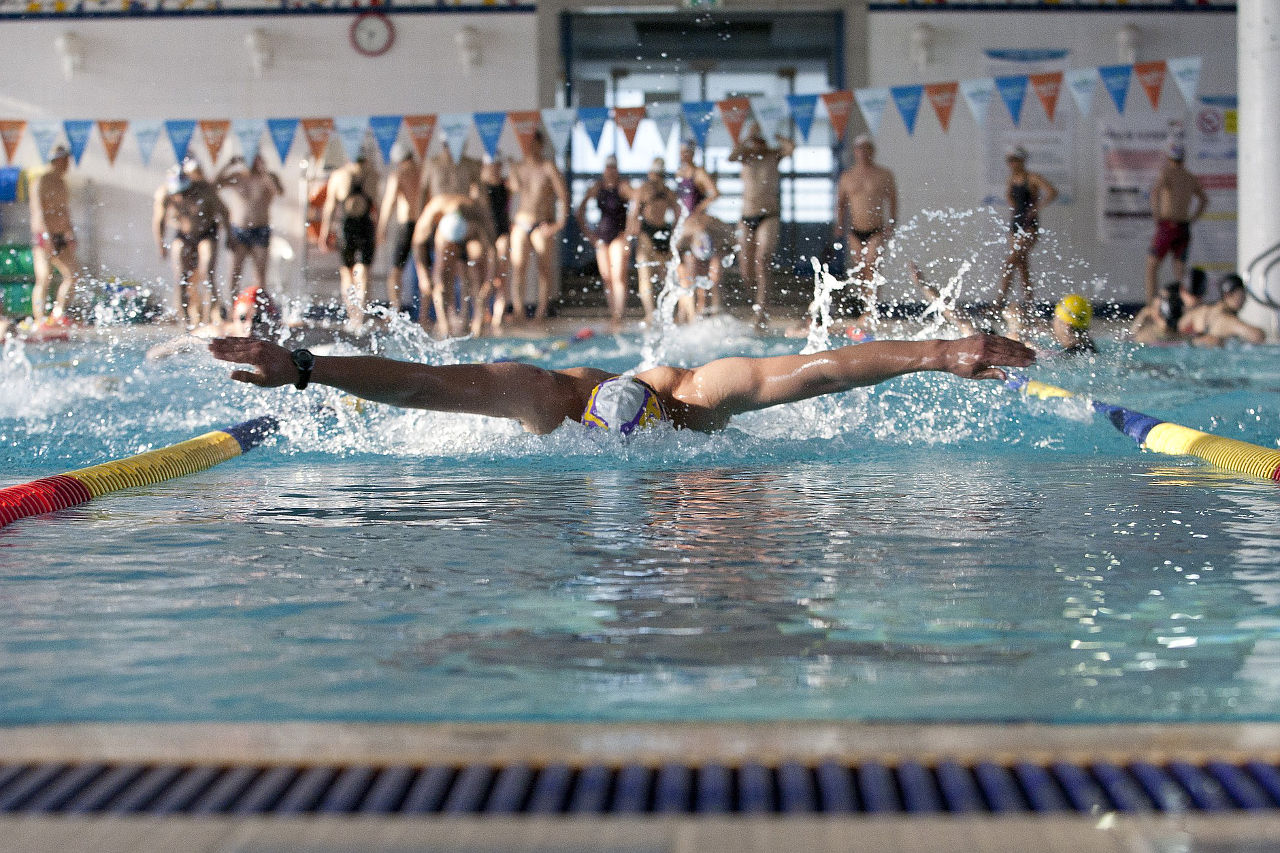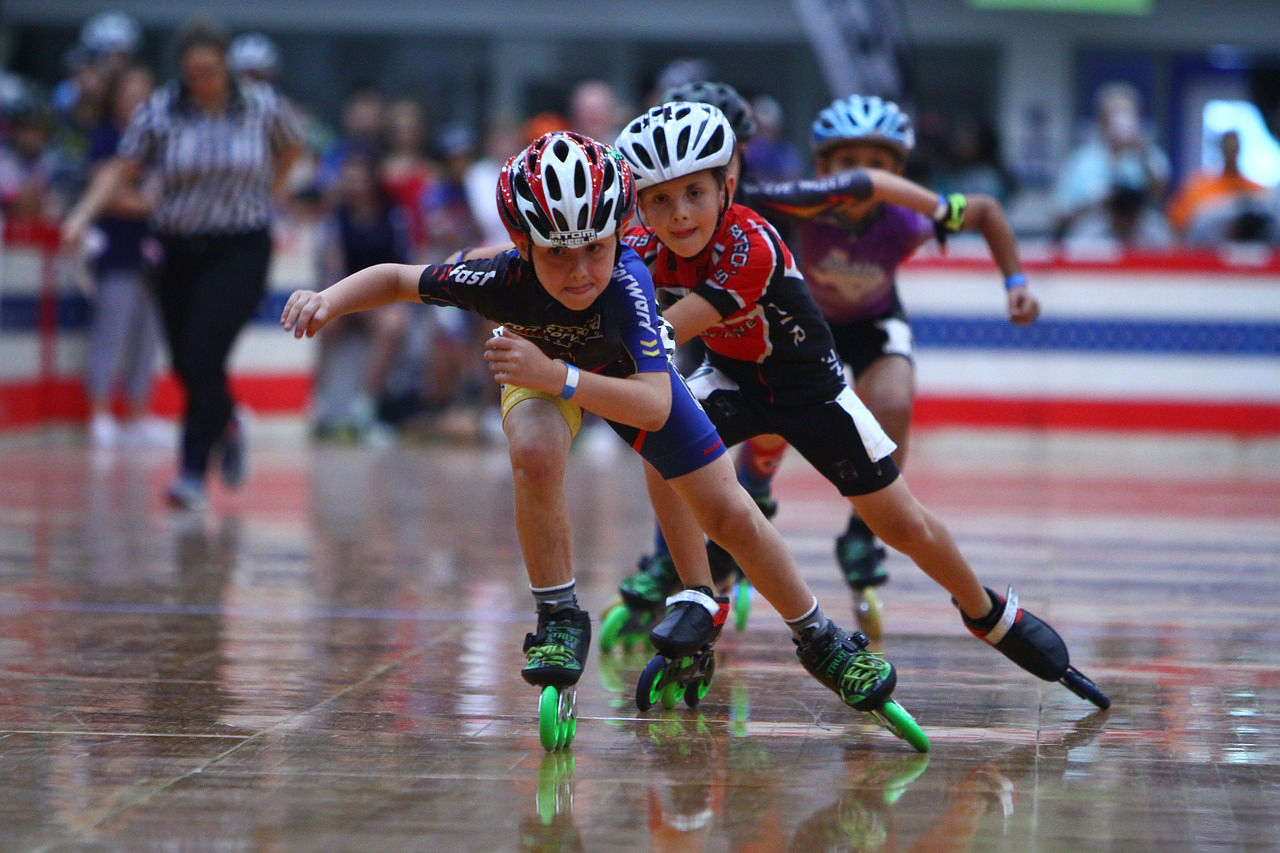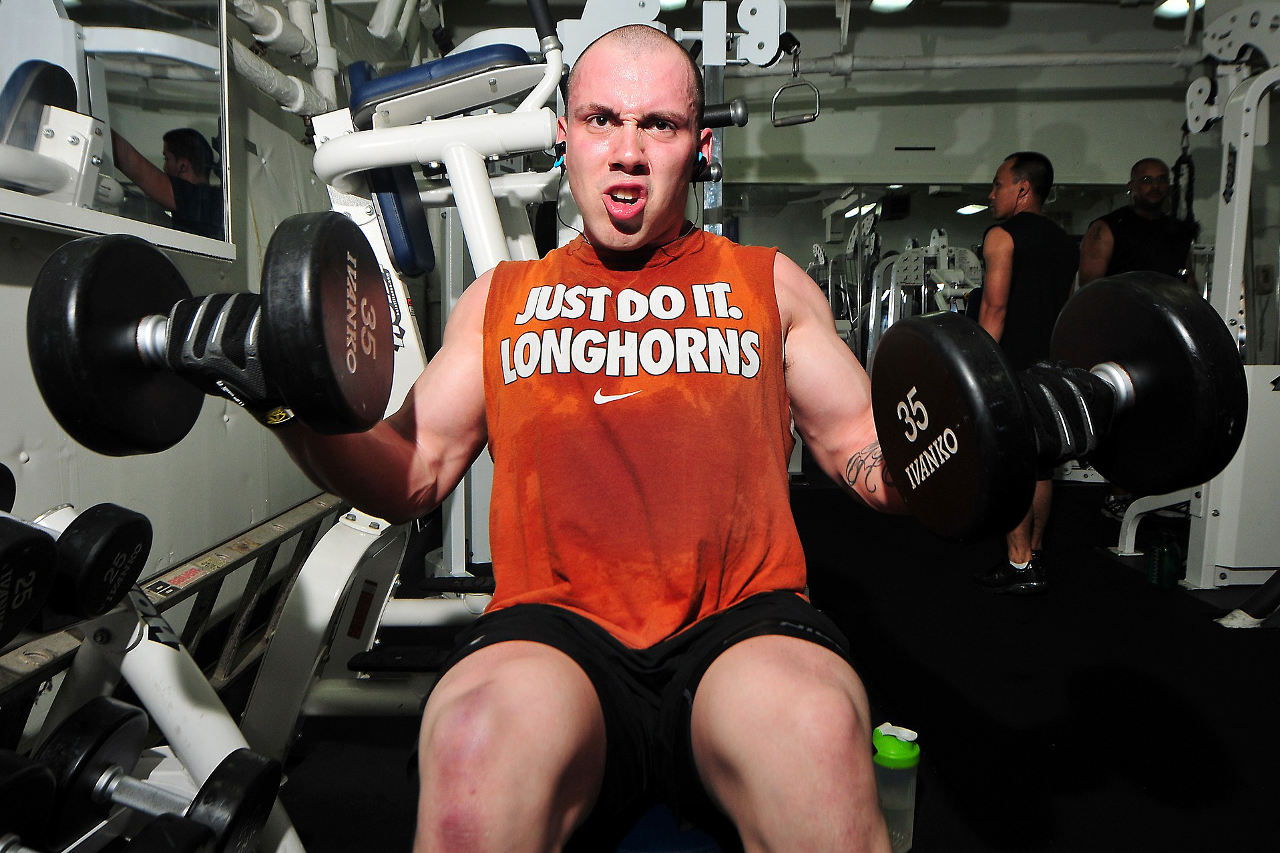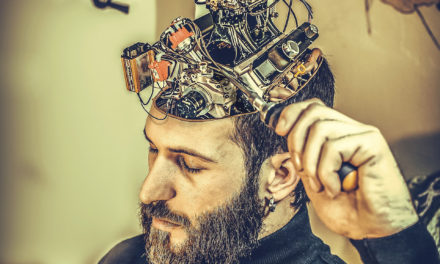Want a Better Memory? Do This Exercise
Want a Better Memory? Try This Exercise For a Stronger Brain
Remember Lumosity? That brain-training company the U.S. Federal Trade Commission fined $2 million in 2016 over deceptive advertising riddled with unfounded claims about their products leading to smarter brains resistant to age-related mental decline? Contrary to what the company claimed, there was no conclusive neuroscientific evidence to back them up [1].
Well, compelling evidence has finally appeared, in the Journal of Neuroscience earlier this month to be precise [2]. But Lumosity is not gonna like it.
University of Pennsylvania’s Caryn Lerman and Joseph Kable led a team who recruited 128 participants –young adults with a mean age of 25, 71 of them male and 57 female– and randomly assigned them to either the experimental group or the control group. The experimental group then trained on Lumosity, playing games addressing working memory, short-term memory, problem-solving, attention, and cognitive flexibility. Meanwhile, control group participants played fun but mentally unchallenging video games created by students at Drexel University. Both groups were instructed to do so for 30 minutes five times a week for ten weeks.
Result? The Lumosity group saw a small improvement in cognitive performance. But then, so did the video game group. The research group even added on a second control group composed of 35 people who didn’t play any kind of game but took the same before-and-after cognitive performance tests the brain-training players and video game players completed, just to see what would happen. Well, the no-game control also saw the same small improvement in cognitive performance as everyone else, suggesting that taking the same cognitive performance test a second time makes for a better score.
But before you discount brain training games completely, both the research teach and Lumosity management note the elephant in the experiment room: all the participants are young adults. Would the results be identical if study subjects were seniors?

(All photos courtesy of Pixabay)
We Know This Exercise Is Doing Something
So the jury might still be out for online brain-training games staving off age-related mental decline but there is one kind of exercise that’s been a heady topic over the last decade: aerobic fitness.
Activities that get the heart pumping at just the right pace for just the right amount of time, exercises like cycling, jogging, and even brisk walks –I prefer swimming, martial arts, canoeing, and trampoline jumping myself– have been shown to improve brain function via a growing collection of studies associating cardiovascular fitness with reduced cognitive impairment and dementia in the elderly.
And the even hotter topic du jour is the idea that cardiovascular exercise doesn’t just protect elderly brains from entropy, but it might actually enhance memory and cognition in just about everyone else.
The even hotter topic du jour is the idea that cardiovascular exercise doesn’t just protect elderly brains from entropy, but it might actually enhance memory and cognition in just about everyone else.
Does Exercise Actually Upgrade the Brain’s Ability to Learn and Remember?
As expressed by McGill University neuroscience and rehabilitation researcher Marc Roig in Montreal and fellow researchers from the University of Copenhagen who conducted a meta-analysis on the subject in 2013 [3], the “vast majority” of studies examining the impact of exercise on cognition were measured changes in attention, decision-making, and/or reaction times. But the impact of exercise on memory and learning? There wasn’t nearly as much research on the subject. So the team looked at 50 studies which did cover exercise and memory.
Of them, 29 studies had participants engaging in acute cardiovascular exercise, that is, short-term bouts of activity like cycling, running, and brisk walking done at specific times either before or after completing a memory task. The interest here was to see if doing an aerobic exercise once at the right time before or after being asked to memorize new information was enough to enhance memory.
In contrast, the remaining 21 studies had participants’ pursuing long-term exercise programs instead, programs lasting anywhere from 4 weeks to 14 months to see if regular activity improves memory.
What stood out in Roig et al.’s meta-analysis was how isolated single bouts of acute exercise seemed to produce “moderate to large effects on long-term memory” while long-term exercise programs as a whole didn’t seem to have “any significant effect on long-term memory.”
As for short-term memory? As little as a single bout of exercise appeared to produce “moderate effects on short-term memory” whereas long-term exercise showed “only small improvements in short-term memory.” By the way, this meta-analysis isn’t the only report that shows a spike in memory retention if exercise is performed at the right moment. For example, one 2016 study [4] showed that a 35-minute interval training session performed 4 hours after learning something new improved memory retention.


(All photos courtesy of Pixabay)


Does That Mean Long-Term Exercise Programs Don’t Improve Memory?
So does that mean that a regular exercise program won’t do much in terms of improving memory and by extension, learning? It’s difficult to jump to any conclusion here because this particular meta-analysis has an age problem.
Almost 90% of participants in the acute exercise studies were young (ages from 18 to 38) while over 76% of the long-term exercise participants were middle-aged or seniors, with ages ranging from 45 to 84 years old. Those are two, even three different brains right there. The younger cohort’s brains, at least those of ages 25 and up, are generally assumed to be neither in a state of rapid development nor atrophy while the older group is likely, again on average, experiencing decline to some extent if lifestyle measures to halt brain atrophy aren’t implemented.
So if those same long-term exercise studies had also recruited young adults in addition to seniors, would improvements in long-term memory have been as comparably flat as they were in older adults? And if the acute exercise studies had featured seniors, would the results have been as significant? In my own literature search, I also noticed that research participants recruited for acute exercise studies tend to skew young, suggesting a research gap which will probably be addressed.
A University of Illinois team pointed out another hiccup earlier this summer [5]. Research on the effects of exercise on cognition as a whole tends to focus on two age groups: children and the elderly but not so much in between. Incidentally, research published just last week in the Society for Neuroscience journal eNeuro looked at the idea that exercise in childhood could protect the brain in old age and found that it did, albeit in rodents [6]. And yet again, the focus is on childhood and old age.
Does this imply we’re setting ourselves up for dementia if we weren’t active enough as kids? What about all those years in between?
The good news is that at least one longitudinal study that followed 2,747 participants over a 25-year period to see how cognitive function evolved in relation to cardiorespiratory fitness once subjects reach middle age, showing a positive correlation between higher fitness levels as a young adult and better cognitive function test results in middle age [7]. Unfortunately, that study didn’t have a chance to compare long-term results between the fittest subjects who were great shape because they’d been active since childhood versus those who transitioned from sedentary childhoods to an active young adulthood. Would there have been a difference in cognitive performance between the two groups 25 years later? Do late bloomers experience as many brain benefits from aerobic activity in old age as people who’ve been athletic since they were kids?

To get back to that group of University of Illinois researchers, their interest in how the brain might be different in young adulthood led them to group together 51 participants –25 males and 26 females ages 18 to 35.
Ultimately, they wanted to see whether participants with better memories had larger hippocampi, as it’s been reported to happen in other studies [8]. The hippocampus is a region in the brain critical to the consolidation of short-term and long-term memories. It’s also one of the few parts of the brain we know of capable of growing neurons throughout the human lifespan, a revolutionary discovery given the long held belief that the adult brain cannot produce new cells.
Well, young adults who scored higher didn’t have larger hippocampi. Instead, they had more elastic hippocampi, suggesting that although we see greater variability in hippocampal volume among children and the elderly, the adult brain in between those generational milestones might be structurally different. Keep in mind that the correlation between hippocampal viscoelasticity and the memory test was moderate to weak though. The Pearson correlation coefficient was 0.38. But considering that there was no correlation at all between hippocampal volume and memory test performance, researchers are clearly onto something, that young adult brains might not “express” themselves structurally the same way that child and elderly brains do.
So the opinion that cognitive test results achieved by one age group after a certain type of training may not reflect what happens if other age groups undergo the same training may be an accurate position to hold after all.
But that wasn’t the only thing this study suggested. Participants who scored higher on memory tests? They also tended to be more aerobically fit. Again, the correlation was on the weak side with a Pearson correlation coefficient of 0.29, but it’s a correlation nonetheless. There’s something there.
Does It Have to Be Aerobic Exercise?
To echo neuroscientist and fitness instructor Dr. Wendy Suzuki, the author of Healthy Brain, Happy Life featured in the video I posted above (and the one below), there’s a bounty of evidence supporting aerobic exercise enhancing brain function. By the same token, there’s some evidence that strength training can have positive effects on the brain. The problem is there’s not nearly as much evidence out there to support strength training as a memory enhancer as there is research supporting aerobic exercise.
At least for now.
For all we know, strength training is rife with benefits to the brain, and there’s been promising research suggesting as much in both young adults [9] and the elderly [10]. But we’ll need to see more studies on the subject before we can confidently make sweeping conclusions.
Remember what happened to Lumosity for jumping the gun?
Long-Term Exercise Programs Don’t Improve Memory?
So does that mean that a regular exercise program won’t do much in terms of improving memory and by extension, learning? It’s difficult to jump to any conclusion here because this particular meta-analysis has an age problem.
Almost 90% of participants in the acute exercise studies were young (ages from 18 to 38) while over 76% of the long-term exercise participants were middle-aged or seniors, with ages ranging from 45 to 84 years old. Those are two, even three different brains right there. The younger cohort’s brains, at least those of ages 25 and up, are generally assumed to be neither in a state of rapid development nor atrophy while the older group is likely, again on average, experiencing decline to some extent if lifestyle measures to halt brain atrophy aren’t implemented.
So if those same long-term exercise studies had also recruited young adults in addition to seniors, would improvements in long-term memory have been as comparably flat as they were in older adults? And if the acute exercise studies had featured seniors, would the results have been as significant? In my own literature search, I also noticed that research participants recruited for acute exercise studies tend to skew young, suggesting a research gap which will probably be addressed.
A University of Illinois team pointed out another hiccup earlier this summer [5]. Research on the effects of exercise on cognition as a whole tends to focus on two age groups: children and the elderly but not so much in between. Incidentally, research published just last week in the Society for Neuroscience journal eNeuro looked at the idea that exercise in childhood could protect the brain in old age and found that it did, albeit in rodents [6]. And yet again, the focus is on childhood and old age.
Does this imply we’re setting ourselves up for dementia if we weren’t active enough as kids? What about all those years in between?
The good news is that at least one longitudinal study that followed 2,747 participants over a 25-year period to see how cognitive function evolved in relation to cardiorespiratory fitness once subjects reach middle age, showing a positive correlation between higher fitness levels as a young adult and better cognitive function test results in middle age [7]. Unfortunately, that study didn’t have a chance to compare long-term results between the fittest subjects who were great shape because they’d been active since childhood versus those who transitioned from sedentary childhoods to an active young adulthood. Would there have been a difference in cognitive performance between the two groups 25 years later? Do late bloomers experience as many brain benefits from aerobic activity in old age as people who’ve been athletic since they were kids?
To get back to that group of University of Illinois researchers, their interest in how the brain might be different in young adulthood led them to group together 51 participants –25 males and 26 females ages 18 to 35.
Ultimately, they wanted to see whether participants with better memories had larger hippocampi, as it’s been reported to happen in other studies [8]. The hippocampus is a region in the brain critical to the consolidation of short-term and long-term memories. It’s also one of the few parts of the brain we know of capable of growing neurons throughout the human lifespan, a revolutionary discovery given the long held belief that the adult brain can’t produce new cells.
Well, young adults who scored higher didn’t have larger hippocampi. Instead, they had more elastic hippocampi, suggesting that although we see greater variability in hippocampal volume among children and the elderly, the adult brain in between those generational milestones might be structurally different. Keep in mind that the correlation between hippocampal viscoelasticity and the memory test was moderate to weak though. The Pearson correlation coefficient was 0.38. But considering that there was no correlation at all between hippocampal volume and memory test performance, researchers are clearly onto something, that young adult brains might not “express” themselves structurally the same way that child and elderly brains do.
So the opinion that cognitive test results achieved by one age group after a certain type of training may not reflect what happens if other age groups undergo the same training may be an accurate position to hold after all.
But that wasn’t the only thing this study suggested. Participants who scored higher on memory tests? They also tended to be more aerobically fit. Again, we don’t know if the fitter young adults were that way because of exercise habits established in childhood. And the correlation was on the weak side with a Pearson correlation coefficient of 0.29, but it’s a correlation nonetheless. There’s something there.
And remember, an impressive amount of studies have shown cognitive improvements in seniors who’ve added a regular exercise routine to their weekly habits even that late in the game. The belief that one is a lost cause because they’ve reached a certain age and thus shouldn’t bother becoming active is not supported by evidence.

Does It Have to Be Aerobic Exercise?
To echo neuroscientist and fitness instructor Dr. Wendy Suzuki, the author of Healthy Brain, Happy Life featured in the video I posted above (and the one below), there’s a bounty of evidence supporting aerobic exercise enhancing brain function. Experts recommend a minimum of 75 minutes of vigorous or 150 minutes of moderate cardiovascular exercise a week. Brisk walking could do the trick as moderate aerobic activity.
At least for now.
For all we know, strength training is rife with benefits to the brain, and there’s been promising research suggesting as much in both young adults [9] and the elderly [10]. But we’ll need to see more studies on the subject before anyone can confidently say as much. Luminosity learned that lesson the expensive way.

References
- Costandi M. Neuroplasticity. Cambridge: MIT Press, 2016. Print.
- Kable JW, Caulfield MK, Falcone M, McConnell M, Bernardo L, Parthasarathi T, Cooper N, Ashare R, Audrain-McGovern J, Hornik R, Diefenbach P, Lee FJ, Lerman C. No effect of commercial cognitive training on brain activity, choice behavior, or cognitive performance. The Journal of Neuroscience 2017; 37(31): 7390-7402.
- Roig M, Nordbrandt S, Geersten SS, Nielsen JB. The effects of cardiovascular exercise on human memory: A review with meta-analysis. Journal of Neuroscience and Biobehavioral Reviews 2013; 37: 1645-1666.
- van Dongen EV, Kersten IHP, Wagner IC, Morris RGM, Fernandez G. Physical exercise performed four hours after learning improves memory retention and increases hippocampal pattern similarity during retrieval. Cell 2016; 26(13): 1722 – 1727.
- Schwarb H, Johnson CL, Daugherty AM, Hillman CH, Kramer AF, Cohen NJ, Barbey AK. Aerobic fitness, hippocampal viscoelasticity, and relational memory performance. NeuroImage 2017; 153: 179-188.
- Shevtsova O, Yao F, Merkley CM, Winocur G, Wojtowicz JM. Early-age running enhances activity of adult-born dentate granule neurons following learning in rats. eNeuro 14 August 2017.
- Zhu N, Jacobs DR Jr, Schreiner PJ, Yaffe K, Bryan N, Launer LJ, Whitmer RA, Sidney S, Demerath E, Thomas W, Bouchard C, He K, Reis J, Sternfeld B. Cardiorespiratory fitness and cognitive function in middle age: the CARDIA study. Neurology 2014; 82(15): 1339-46.
- Biegler R, McGregor A, Krebs JR, Healy SD. A larger hippocampus is associated with longer-lasting spatial memory. Proceedings of the National Academy of Sciences of the United States of America 2001; 98(12): 6941-6944.
- Weinberg L, Hasni A, Shinohara M, Duarte A. A single bout of resistance exercise can enhance episodic memory performance. Acta Psychologica 2014; 153: 13-9.
- Nagamatsu LS, Handy TC, Hsu CL, Voss M, Liu-Ambrose T. Resistance training promotes cognitive and functional brain plasticity in seniors with probable mild cognitive impairment: A 6-month randomized controlled trial. Archives of Internal Medicine. 2012; 172(8): 666-668.
Want a Better Memory? Try This Exercise For a Stronger Brain
Remember Lumosity? That brain-training company the U.S. Federal Trade Commission fined $2 million in 2016 over deceptive advertising riddled with unfounded claims about their products leading to smarter brains resistant to age-related mental decline? Contrary to what the company claimed, there was no conclusive neuroscientific evidence to back them up [1].
Well, compelling evidence has finally appeared, in the Journal of Neuroscience earlier this month to be precise [2]. But Lumosity is not gonna like it.
University of Pennsylvania’s Caryn Lerman and Joseph Kable led a team who recruited 128 participants –young adults with a mean age of 25, 71 of them male and 57 female– and randomly assigned them to either the experimental group or the control group. The experimental group then trained on Lumosity, playing games addressing working memory, short-term memory, problem-solving, attention, and cognitive flexibility. Meanwhile, control group participants played fun but mentally unchallenging video games created by students at Drexel University. Both groups were instructed to do so for 30 minutes five times a week for ten weeks.
Result? The Lumosity group saw a small improvement in cognitive performance. But then, so did the video game group. The research group even added on a second control group composed of 35 people who didn’t play any kind of game but took the same before-and-after cognitive performance tests the brain-training players and video game players completed, just to see what would happen. Well, the no-game control also saw the same small improvement in cognitive performance as everyone else, suggesting that taking the same cognitive performance test a second time makes for a better score.
But before you discount brain training games completely, both the research teach and Lumosity management note the elephant in the experiment room: all the participants are young adults. Would the results be identical if study subjects were seniors?

(All photos courtesy of Pixabay)
We Know This Exercise Is Doing Something
So the jury might still be out for online brain-training games staving off age-related mental decline but there is one kind of exercise that’s been a heady topic over the last decade: aerobic fitness.
Activities that get the heart pumping at just the right pace for just the right amount of time, exercises like cycling, jogging, and even brisk walks –I prefer swimming, martial arts, and trampoline jumping myself– have been shown to improve brain function with a growing collection of studies associating cardiovascular fitness with reduced cognitive impairment and dementia in the elderly.
And the even hotter topic du jour is the idea that cardiovascular exercise doesn’t just protect elderly brains from entropy, but it might actually enhance memory and cognition in just about everyone else.
Does Exercise Actually Upgrade the Brain’s Ability to Learn and Remember?
As expressed by McGill University neuroscience and rehabilitation researcher Marc Roig in Montreal and fellow researchers from the University of Copenhagen who conducted a meta-analysis on the subject in 2013 [3], the “vast majority” of studies examining the impact of exercise on cognition were measured changes in attention, decision-making, and/or reaction times. But the impact of exercise on memory and learning? There wasn’t nearly as much research on the subject. So the team looked at 50 studies which did cover exercise and memory.
Of them, 29 studies had participants engaging in acute cardiovascular exercise, that is, short-term bouts of activity like cycling, running, and brisk walking done at specific times either before or after completing a memory task. The interest here was to see if doing an aerobic exercise once at the right time before or after being asked to memorize new information was enough to enhance memory.
In contrast, the remaining 21 studies had participants’ pursuing long-term exercise programs instead, programs lasting anywhere from 4 weeks to 14 months to see if regular activity improves memory.
What stood out in Roig et al.’s meta-analysis was how isolated single bouts of acute exercise seemed to produce “moderate to large effects on long-term memory” while long-term exercise programs as a whole didn’t seem to have “any significant effect on long-term memory.”
As for short-term memory? As little as a single bout of exercise appeared to produce “moderate effects on short-term memory” whereas long-term exercise showed “only small improvements in short-term memory.” By the way, this meta-analysis isn’t the only report that shows a spike in memory retention if exercise is performed at the right moment. For example, one 2016 study [4] showed that a 35-minute interval training session performed 4 hours after learning something new improved memory retention.

(All photos courtesy of Pixabay)
The even hotter topic du jour is the idea that cardiovascular exercise doesn’t just protect elderly brains from entropy, but it might actually enhance memory and cognition in just about everyone else.
Does That Mean Long-Term Exercise Programs Don’t Improve Memory?
So does that mean that a regular exercise program won’t do much in terms of improving memory and by extension, learning? It’s difficult to jump to any conclusion here because this particular meta-analysis has an age problem.
Almost 90% of participants in the acute exercise studies were young (ages from 18 to 38) while over 76% of the long-term exercise participants were middle-aged or seniors, with ages ranging from 45 to 84 years old. Those are two, even three different brains right there. The younger cohort’s brains, at least those of ages 25 and up, are generally assumed to be neither in a state of rapid development nor atrophy while the older group is likely, again on average, experiencing decline to some extent if lifestyle measures to halt brain atrophy aren’t implemented.
So if those same long-term exercise studies had also recruited young adults in addition to seniors, would improvements in long-term memory have been as comparably flat as they were in older adults? And if the acute exercise studies had featured seniors, would the results have been as significant? In my own literature search, I also noticed that research participants recruited for acute exercise studies tend to skew young, suggesting a research gap which will probably be addressed.
A University of Illinois team pointed out another hiccup earlier this summer [5]. Research on the effects of exercise on cognition as a whole tends to focus on two age groups: children and the elderly but not so much in between. Incidentally, research published just last week in the Society for Neuroscience journal eNeuro looked at the idea that exercise in childhood could protect the brain in old age and found that it did, albeit in rodents [6]. And yet again, the focus is on childhood and old age.
Does this imply we’re setting ourselves up for dementia if we weren’t active enough as kids? What about all those years in between?
The good news is that at least one longitudinal study that followed 2,747 participants over a 25-year period to see how cognitive function evolved in relation to cardiorespiratory fitness once subjects reach middle age, showing a positive correlation between higher fitness levels as a young adult and better cognitive function test results in middle age [7]. Unfortunately, that study didn’t have a chance to compare long-term results between the fittest subjects who were great shape because they’d been active since childhood versus those who transitioned from sedentary childhoods to an active young adulthood. Would there have been a difference in cognitive performance between the two groups 25 years later? Do late bloomers experience as many brain benefits from aerobic activity in old age as people who’ve been athletic since they were kids?

To get back to that group of University of Illinois researchers, their interest in how the brain might be different in young adulthood led them to group together 51 participants –25 males and 26 females ages 18 to 35.
Ultimately, they wanted to see whether participants with better memories had larger hippocampi, as it’s been reported to happen in other studies [8]. The hippocampus is a region in the brain critical to the consolidation of short-term and long-term memories. It’s also one of the few parts of the brain we know of capable of growing neurons throughout the human lifespan, a revolutionary discovery given the long held belief that the adult brain can’t produce new cells.
Well, young adults who scored higher didn’t have larger hippocampi. Instead, they had more elastic hippocampi, suggesting that although we see greater variability in hippocampal volume among children and the elderly, the adult brain in between those generational milestones might be structurally different. Keep in mind that the correlation between hippocampal viscoelasticity and the memory test was moderate to weak though. The Pearson correlation coefficient was 0.38. But considering that there was no correlation at all between hippocampal volume and memory test performance, researchers are clearly onto something, that young adult brains might not “express” themselves structurally the same way that child and elderly brains do.
So the opinion that cognitive test results achieved by one age group after a certain type of training may not reflect what happens if other age groups undergo the same training may be an accurate position to hold after all.
But that wasn’t the only thing this study suggested. Participants who scored higher on memory tests? They also tended to be more aerobically fit. Again, we don’t know if the fitter young adults were that way because of exercise habits established in childhood. And the correlation was on the weak side with a Pearson correlation coefficient of 0.29, but it’s a correlation nonetheless. There’s something there.
And remember, an impressive amount of studies have shown cognitive improvements in seniors who’ve added a regular exercise routine to their weekly habits even that late in the game. The belief that one is a lost cause because they’ve reached a certain age and thus shouldn’t bother becoming active is not supported by evidence.

Does It Have to Be Aerobic Exercise?
To echo neuroscientist and fitness instructor Dr. Wendy Suzuki, the author of Healthy Brain, Happy Life featured in the video I posted above (and the one below), there’s a bounty of evidence supporting aerobic exercise enhancing brain function. Experts recommend a minimum of 75 minutes of vigorous or 150 minutes of moderate cardiovascular exercise a week. Brisk walking could do the trick as moderate aerobic activity.
By the same token, there’s some evidence that strength training can have positive effects on the brain. The problem is there’s not nearly as much evidence out there to support strength training as a memory enhancer as there is research supporting aerobic exercise.
At least for now.
For all we know, strength training is rife with benefits to the brain, and there’s been promising research suggesting as much in both young adults [9] and the elderly [10]. But we’ll need to see more studies on the subject before anyone can confidently say as much. Luminosity learned that lesson the expensive way.

References
- Costandi M. Neuroplasticity. Cambridge: MIT Press, 2016. Print.
- Kable JW, Caulfield MK, Falcone M, McConnell M, Bernardo L, Parthasarathi T, Cooper N, Ashare R, Audrain-McGovern J, Hornik R, Diefenbach P, Lee FJ, Lerman C. No effect of commercial cognitive training on brain activity, choice behavior, or cognitive performance. The Journal of Neuroscience 2017; 37(31): 7390-7402.
- Roig M, Nordbrandt S, Geersten SS, Nielsen JB. The effects of cardiovascular exercise on human memory: A review with meta-analysis. Journal of Neuroscience and Biobehavioral Reviews 2013; 37: 1645-1666.
- van Dongen EV, Kersten IHP, Wagner IC, Morris RGM, Fernandez G. Physical exercise performed four hours after learning improves memory retention and increases hippocampal pattern similarity during retrieval. Cell 2016; 26(13): 1722 – 1727.
- Schwarb H, Johnson CL, Daugherty AM, Hillman CH, Kramer AF, Cohen NJ, Barbey AK. Aerobic fitness, hippocampal viscoelasticity, and relational memory performance. NeuroImage 2017; 153: 179-188.
- Shevtsova O, Yao F, Merkley CM, Winocur G, Wojtowicz JM. Early-age running enhances activity of adult-born dentate granule neurons following learning in rats. eNeuro 14 August 2017.
- Zhu N, Jacobs DR Jr, Schreiner PJ, Yaffe K, Bryan N, Launer LJ, Whitmer RA, Sidney S, Demerath E, Thomas W, Bouchard C, He K, Reis J, Sternfeld B. Cardiorespiratory fitness and cognitive function in middle age: the CARDIA study. Neurology 2014; 82(15): 1339-46.
- Biegler R, McGregor A, Krebs JR, Healy SD. A larger hippocampus is associated with longer-lasting spatial memory. Proceedings of the National Academy of Sciences of the United States of America 2001; 98(12): 6941-6944.
- Weinberg L, Hasni A, Shinohara M, Duarte A. A single bout of resistance exercise can enhance episodic memory performance. Acta Psychologica 2014; 153: 13-9.
- Nagamatsu LS, Handy TC, Hsu CL, Voss M, Liu-Ambrose T. Resistance training promotes cognitive and functional brain plasticity in seniors with probable mild cognitive impairment: A 6-month randomized controlled trial. Archives of Internal Medicine. 2012; 172(8): 666-668.









